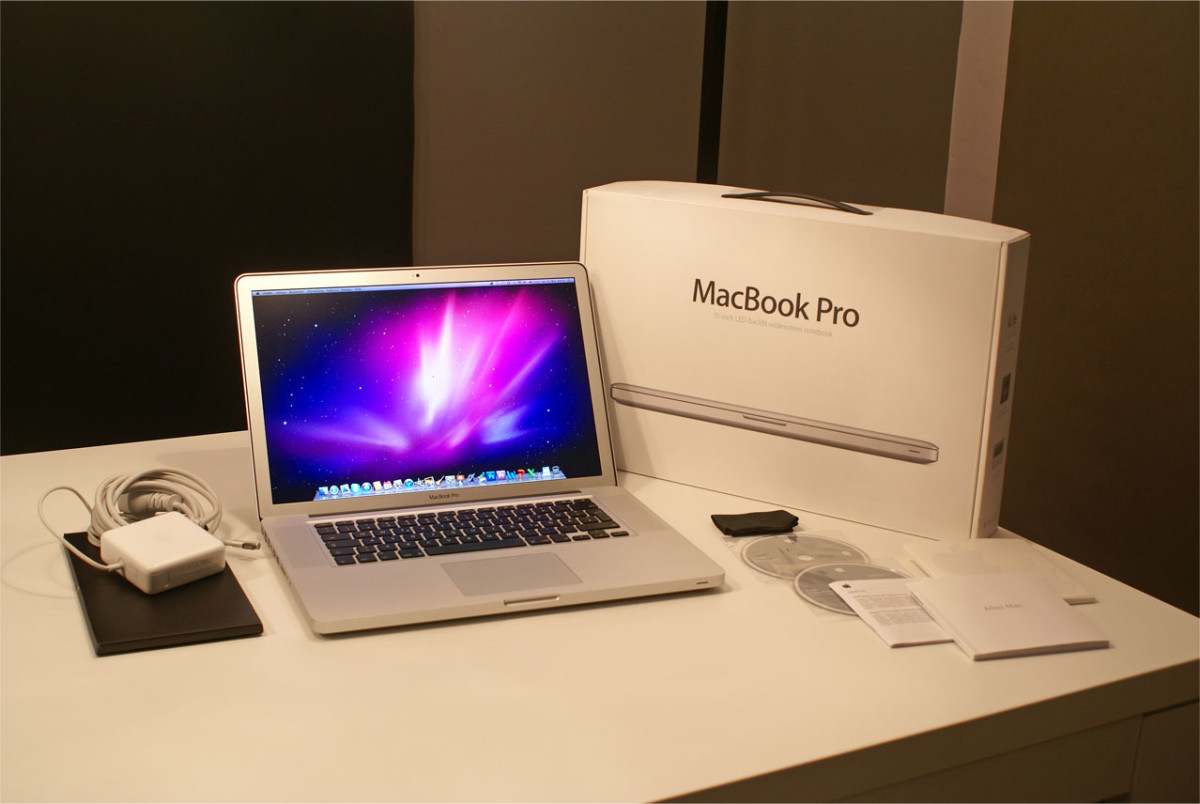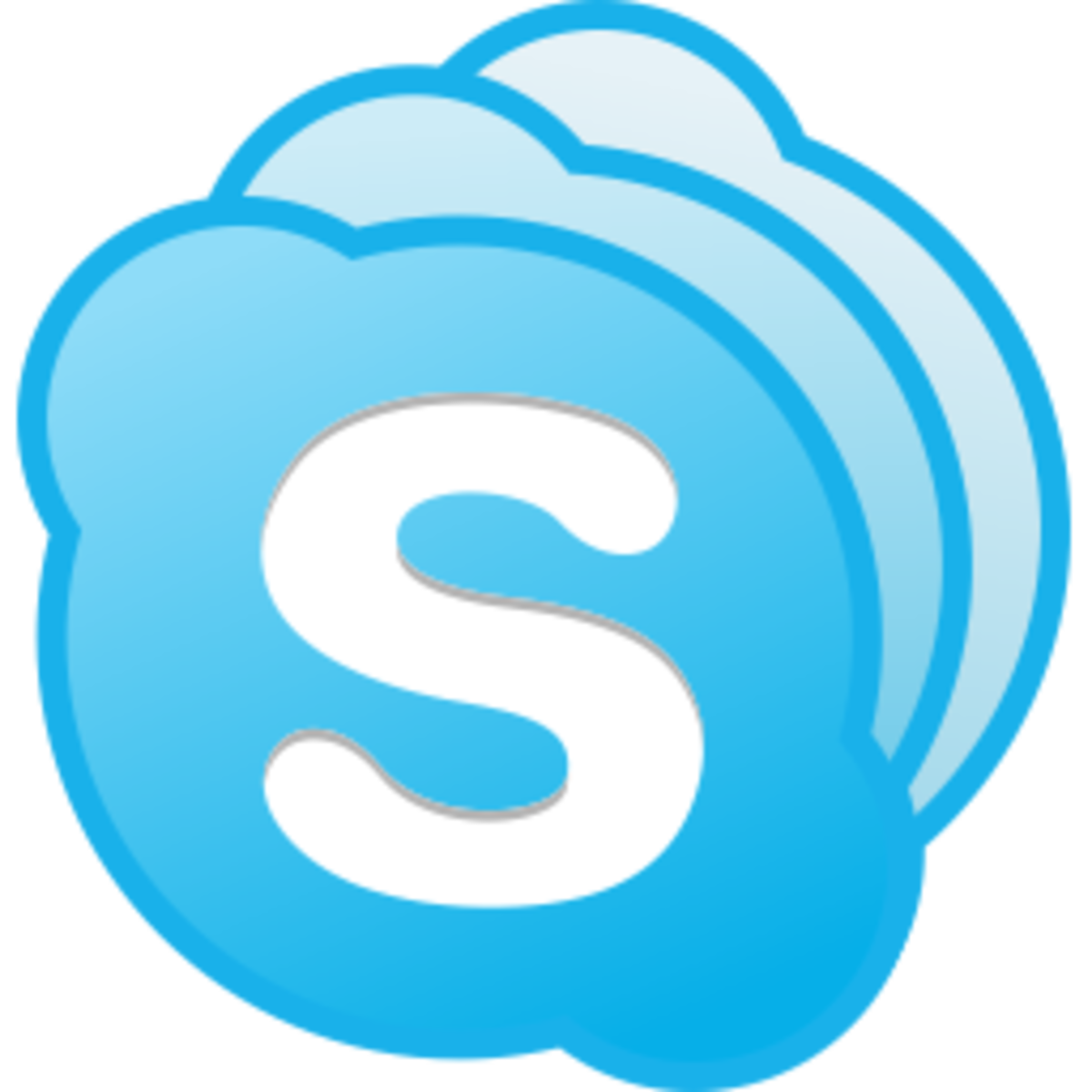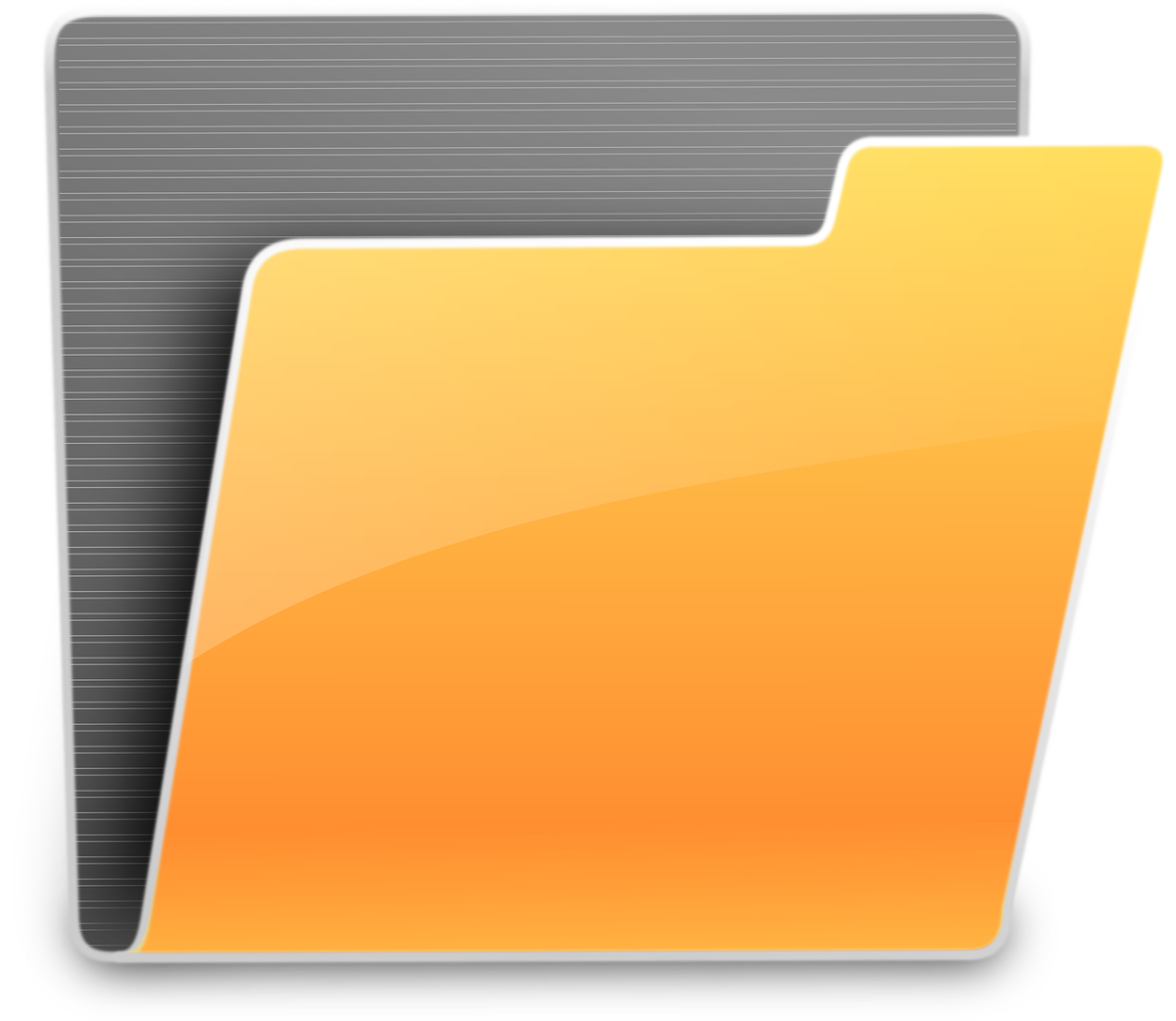Chrome OS & Chrome Cr-48
Chrome OS Cr-48 Notebooks Arrive
First, and foremost, this is a test machine and a test operating system. Whether or not they ever make it to market is entirely dependent on both Google, and the few thousand people who have one, are testing it, and report the results back to Google.
So, before you go dashing off to buy one, bear this in mind; they aren't for sale...yet.
What Is It?
Google's reasoning is thus. Many people fire up their computers every day for the sole and only purpose of getting on the Internet; surfing, sending mail, doing research, and finding out what's going on in the world. These people do not do necessarily spend that time typing electronic letters, working with spread-sheets, or bother with email.
If they do need to email they do it over the Internet and if they need to craft a document or a budget they use a web-based application to do it.
As such, these folks spend an amazing amount of time waiting for the computer to start (loading bios, kernals, device drivers, etc.) just so they can surf the web.
To Google's way of thinking this is just too much time waiting for everything your computer loads to do almost anything, not just surf the web. Whereas many people don't need all that stuff loaded up when their sole and only intention is to get to the Internet A.S.A.P.
Why not cut out the massive Operating System (OS) and simply load Google Chrome as the OS? This means the computer will start faster and you will instantly (or near instantly) have access to your intended destination.
Why not?
Chrome OS
The first step in this process was to tweak the Chrome browser so it would load as an operating system instead of just a browser. Google has done this.
Chrome Cr-48
The second step was to build a dedicated netbook computer that runs Chrome OS only. Google has also done this.
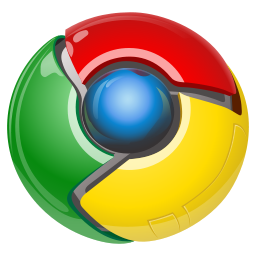
Chrome OS
Chrome Operating System (OS) is a Linux based, open source1, project developed by Google Corporation as an OS designed only to work across the Internet.
Note: I use both Linux and Windows and have Chrome on both. Chrome runs faster than Firefox on both machines and much faster than Internet Explorer on Windows.
At this point in time Chrome OS is not intended as a downloadable operating system or intended to be sold as a adjunct to your existing computer. Rather, Chrome OS has been specifically designed to run, pre-installed, on a computer designed just for that purpose.
Because of this design, email, word processing, spread-sheet calculations and the like will be done on the Internet via Google Docs, Google Mail, and so on. In other word the computer and operating system are not designed to store or create files locally (on your machine), but rather stored on the cloud2 along with anything else the end user may decide to save.
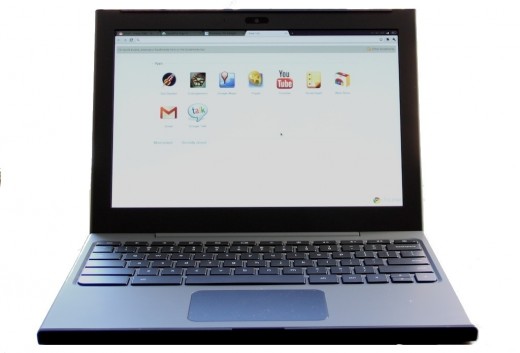
Chrome Cr-48
Because Chrome OS has not been designed to be sold without a computer or as a stand-alone operating system Google has also released a computer to run it on.
At this point in time the computer is delivered to testers, free of charge, as long as the individuals agree to report problems, user experience, and any other thoughts that come along back to the parent company.
The computers themselves are a somewhat nondescript black rubberized case with no indication of who built the machine for Google. Google has stated that they do not intend to sell these machines...at this time. The wording is such that the company is taking a "wait and see" attitude before committing one way or another on sales.
It does come with a small buiness card that says:
"If you crack this open
you'll find Intel"
Almost an invitation to do so.
Machine Particulars
On looking at the machines a number of things are obvious. There are no function keys, there is no print-screen key, and there is no caps-lock key though I don't see this last as a real problem. Though there is not a brand on the machine itself it is produced by Inventec, a Taiwanese company that initially built prototype machines, but has grown to build products like smartphones and netbook computers.
That said, at this point in time, Google denies any intention to sell these machines.
In place of the function keys are navigation keys specifically designed for web-page navigation. The keyboard seems to be a decent size along with the screen, touchpad, and ample space to rest your wrists/hands. The screen itself is also a decent size, but it will not support HD video from places like Hulu or YouTube.
Target Microsoft / Apple
Both Apple and Microsoft now have something real to worry about. Microsoft surely saw the writing on the wall a couple of years ago when it tried to out-Google Google. Now that the search outfit has launched an OS and computer those worries have suddenly come true.
The companies Acer, Adobe, Asus, Freescale, Hewlett-Packard, Lenovo, Qualcomm, Texas Instruments, Toshiba,Intel,Samsung Australia, and Dell are all said to be either prepared to, or have already started building machines to run this OS.
Kudos and Boos
Kudos
The machine is said to boot up in about ten seconds and includes WiFi, 3G, and wired connectivity to the Internet. It has one USB port. Better still, the machine is reported to wake up instantly from a sleep mode in about two seconds.
Other positive features are:
- Plain no frills matte finish inside and out
- Large (LARGE) battery for extended use
- Alt-Tab window switching is super-fast
- Light and thin
- Large keys with spaces between them
- Works with Gmail and Google Office
- Works with Google Phone
Boos
There aren't many, but they are there. The last is the most disturbing to me.
- The machine uses an Intel Atom processor so its definitely underpowered
- Will not display HiDefinition (not even 720p)
- Requires either a Cloud enabled printer or printing from another computer
Create Your Own Bootable Chrome USB Drive
With a blank or reusable 4GB USB thumb drive you can create a bootable Chrome OS operating environment. See the details here.
Coda
I love Google and the things they've brought to the computing public in the way of products, services, and inspiration.
I have reservations about Cloud Computing however, there are a number of reasons, but right up there at the top with a bullet is the fact that if we go this way, and stop saving our work on local machines, we are wholly and completely dependent on Google (or whoever the cloud supplier is) for storage, access, and security.
This means that if their networks go down there's nothing anyone can do about it. It means that security is left entirely up to someone else (not always a good thing) and the work might be compromised because we don't have sole possession of it.
Footnotes
1 Open source means that no company or individual owns rights to the software. Because of this development can be carried out by anyone interested. It also generally means that the software is free.
2 Cloud computing means that almost everything is done over the Internet or a large network of computers; not on the user's machine itself. This means, in turn, that software, files (documents etc.), virtually everything is stored off-site and off of the end-user's computer.




